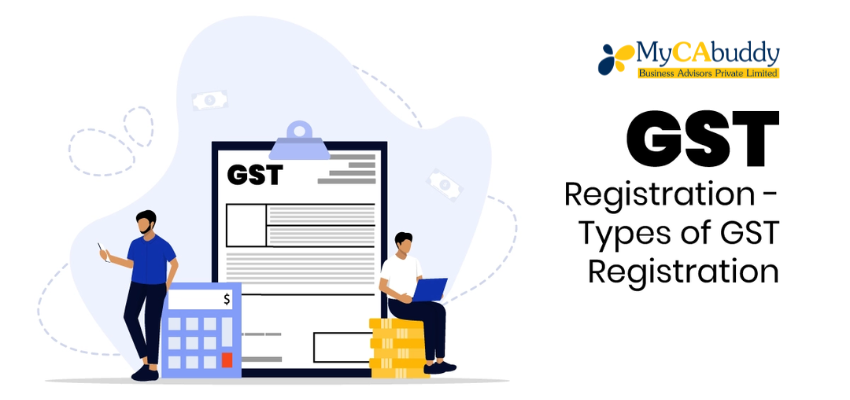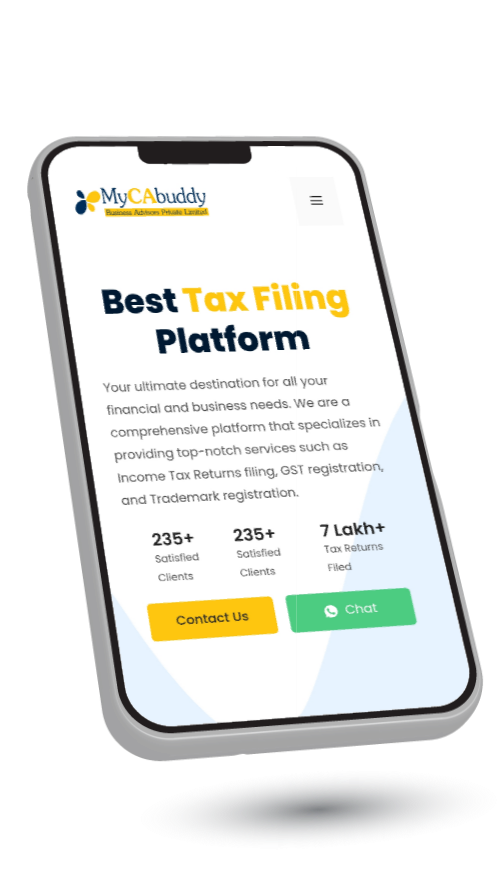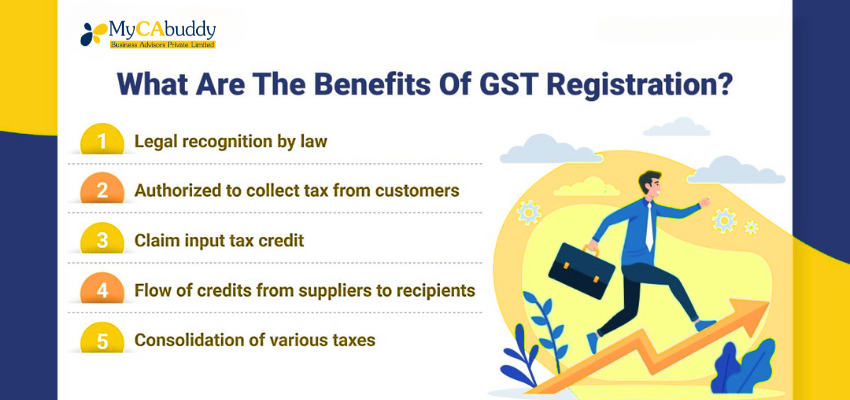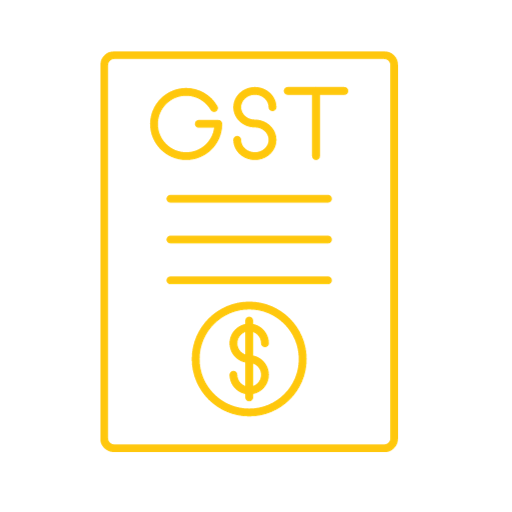GST, which stands for Goods and Services Tax, is a revolutionary tax regime in India that was implemented on July 1, 2017, under the Goods and Service Tax Act. It replaced several existing indirect taxes, such as excise duty, VAT, and service tax, creating a unified taxation system for goods and services consumed within the country.
Who Needs GST Registration?
A ‘taxable person’ under the GST Act is someone who conducts business in India and is either already registered or needs to register under the GST Act. This can encompass a wide range of entities, including individuals, Hindu Undivided Families (HUFs), companies, firms, Limited Liability Partnerships (LLPs), associations of persons, foreign corporations, co-operative societies, local authorities, governments, trusts, or even artificial juridical persons.
Save time and hassle with MyCAbuddy
Get your GST registration done
GST Registration Turnover Limits
In India, GST registration can be obtained voluntarily by any person or entity, regardless of their annual turnover. However, GST registration becomes mandatory when a person or entity’s sales of goods or services exceed specific turnover limits, which are defined as follows:
Service Providers: Any individual or entity that provides services with an aggregate turnover exceeding Rs. 20 lakhs in a year is required to obtain GST registration. In special category states, the turnover limit for service providers is set at Rs. 10 lakhs.
Goods Suppliers: For those exclusively supplying goods, the threshold for mandatory GST registration is an annual aggregate turnover of Rs. 40 lakhs. However, certain conditions must be met to qualify for this higher turnover limit:
- They should not be providing services.
- They should not be involved in making intra-state supplies in specific states.
- They should not be engaged in the supply of specific products like ice cream, pan masala, or tobacco.
In cases where these conditions are not met, suppliers of goods must register for GST once their turnover crosses Rs. 20 lakhs or Rs. 10 lakhs in special category states.
Special Category States: Certain states in India are classified as special category states, including Arunachal Pradesh, Assam, Jammu and Kashmir, Manipur, Meghalaya, Mizoram, Nagaland, Sikkim, Tripura, Himachal Pradesh, and Uttarakhand.
What is GSTIN?
GSTIN, or Goods and Services Tax Identification Number, is a unique 15-character identifier assigned to entities with GST registration. It’s based on the entity’s PAN (Permanent Account Number) and the state of operation. In a GSTIN, the first two digits represent the state code, followed by the next 10 digits representing the PAN of the entity.
The Memorandum of Association is a vital document that outlines the society’s name, objectives, details of the governing body members, and the registered office address.

Types of GST Registration
There are various types of GST registrations, including regular, casual taxable persons, non-resident taxable persons, and eCommerce operators. These registrations are required irrespective of turnover limits for the following:
- Casual Taxable Persons: These are entities that occasionally supply goods or services in a state or union territory where they have no fixed place of business. This includes temporary or seasonal businesses like fairs or exhibitions.
- Non-resident Taxable Persons: Non-resident taxable persons (NRIs) under GST are individuals or businesses supplying goods or services to India but having no fixed place of business or residence within the country.
- E-Commerce Operators: Anyone who owns, operates, or manages a digital or electronic platform for electronic commerce is considered an eCommerce operator. This includes those who sell online through platforms like Amazon, Flipkart, Zomato, and Swiggy.
Obtaining GST Registration
Obtaining GST registration is crucial for businesses to formalize their operations and leverage various benefits, including:
- Access to bank loans based on GST return data.
- Onboarding as a supplier for reputed companies.
- Authorization to sell online through platforms like Amazon, Flipkart, and others.
- Eligibility to claim Input Tax Credit (ITC) on taxes paid while purchasing goods and services, which can result in tax savings and improved margins.
Benefits with us
Work smarter, save money, and get expert guidance. We’re here to help you succeed.
- Streamlined Registration Process
- Compliance Assurance
- Cost Efficiency
- Employee Welfare
- Expert Guidance

Penalties for Non-Compliance
Entities that surpass the aggregate turnover limit must obtain GST registration within 30 days of becoming liable for it. Delay or non-compliance can result in penalties, including a fine of Rs. 10,000 and potential loss of input tax credit during the period of delay.
Documents Required for GST Registration
The documents required for GST registration vary based on the type of entity:
Sole Proprietor/Individual:
- PAN card of the owner
- Aadhar card of the owner
- Owner’s photograph
- Bank account details
- Address proof
LLP and Partnership Firms:
- PAN card of all partners
- Copy of partnership deed
- Photograph of all partners
- Address proof of partners
- Aadhar card of authorized signatory
- Proof of appointment of authorized signatory
- Registration certificate or board resolution (in the case of LLP)
- Bank account details
- Address proof of the principal place of business
HUF (Hindu Undivided Family):
- PAN card of HUF
- PAN card and Aadhar card of Karta (head of the family)
- Karta’s photograph
- Bank account details
- Address proof of the principal place of business
Company (Public and Private):
- PAN card of the company
- Certificate of incorporation from the Ministry of Corporate Affairs
- Memorandum of Association/Articles of Association
- PAN card and Aadhar card of the authorized signatory
- Photograph of all directors and the authorized signatory
- Board resolution appointing the authorized signatory or other proof of appointment
- Bank account details
- Address proof of the principal place of business

Benefits of GST Registration
Obtaining GST registration offers numerous advantages:
- Access to bank loans based on GST return data.
- Onboarding as a supplier for reputed companies.
- Authorization to sell online through platforms like Amazon, Flipkart, and others.
- Eligibility to claim Input Tax Credit (ITC) on taxes paid while purchasing goods and services, which can result in tax savings and improved margins.
Voluntary GST Registration
Businesses and individuals can obtain GST registration voluntarily, which can help them formalize their operations, avail Input Tax Credit, and provide GST-compliant bills to their customers.
Frequently Asked Questions
Do I need a separate GST registration for each state in which I do business?
Yes, if you have a presence in multiple states, you must obtain a separate GST registration for each state. This is known as state-wise GST registration.
Can I cancel my GST registration if I no longer meet the turnover threshold?
Yes, you can apply for GST registration cancellation if you no longer meet the turnover threshold. This must be done within a specified time frame.
What are the consequences of not registering for GST when required?
Failure to register for GST when required may result in penalties and legal consequences. It can also affect your ability to claim input tax credit.
Can I track the status of my GST registration application?
Yes, you can track the status of your GST registration application on the GST portal using your application reference number.
How long does it take to get a GST registration certificate?
The GST registration process typically takes 5-7 working days, but it can vary based on factors such as document verification and the workload of the tax authorities.
If you have any questions or need assistance with your GST registration, please feel free to contact us. We’re here to help you navigate the complexities of the GST system and ensure compliance with the latest tax regulations.

